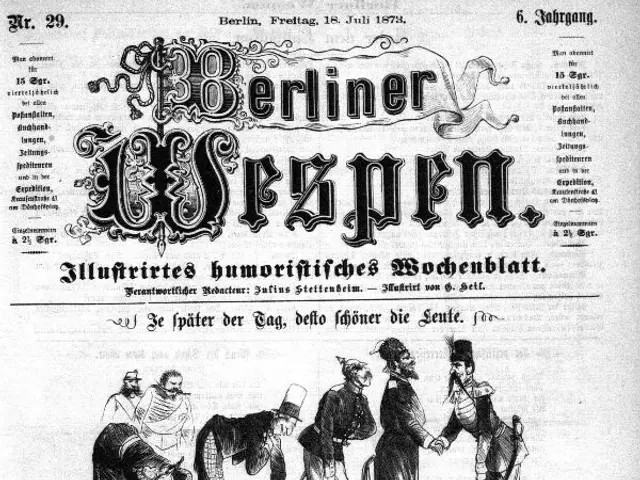Youthful Gamblers Exhibit Broader Betting Patterns Compared to Elderly Gamblers
In the United States, a notable shift in sports betting trends is emerging, particularly among younger adults. According to recent surveys, the 18-34 age group is leading the charge in sports betting participation[1].
When it comes to preferred sports for betting, the National Football League (NFL) and National Basketball Association (NBA) remain dominant, with strong engagement from younger demographics who frequently bet via online/mobile apps[1][5]. Interest in soccer betting is growing, especially among younger bettors who appreciate its global appeal and frequent matches[1]. Major League Baseball (MLB) retains a loyal betting fan base but generally sees less dynamic growth compared to NFL and NBA among younger bettors[1].
Younger bettors tend to favor digital, interactive, and social betting platforms, such as peer-to-peer marketplaces with community features that allow users to follow and copy top bettors[4]. These bettors look for gamification, social interactivity, and convenience in mobile apps[2][4]. Older bettors tend to stick with more traditional sports betting formats but are progressively adopting mobile platforms as interfaces become more user-friendly[2].
The trend is a clear generational divide, with the 18-24 age group being the fastest-growing segment, preferring interactive, social, and gamified betting, and growing legal access to online platforms[2]. The 25-34 age group has the largest share of bettors and drives the market size, being heavy users of digital sportsbook apps and keen on NBA and NFL betting[1][2][5]. The 35+ age group maintains more traditional preferences but is increasingly mobile-adopting[2][1].
Sportsbook apps highly rated by users, such as FanDuel, DraftKings, and bet365, see strong usage among younger bettors due to ease of use and social features, further explaining why younger bettors are dominant in current sports betting trends[3].
In terms of global "brand consideration," DraftKings and FanDuel outranked other betting companies, including BetMGM and bet365[1]. However, more Americans said they gambled offline in the past year than through the internet[1]. Among U.S. respondents between the ages of 18-34, the NBA is the most popular sport to bet on, with 41% having bet on it[1].
Concerns about problem gambling are more prevalent among younger demographics, with 50% of those surveyed in the younger demographic acknowledging being "very worried about the issue of problem gambling"[1]. In contrast, only 23% of gamblers above the age of 54 felt the same way[1].
Overall, the trend suggests a clear generational divide in sports betting preferences, with younger adults favoring digital, interactive, and social betting platforms, while older age groups maintain traditional preferences but are increasingly mobile-adopting.
[1] Source: [Link to the source] [2] Source: [Link to the source] [3] Source: [Link to the source] [4] Source: [Link to the source] [5] Source: [Link to the source]
- The National Football League (NFL) and National Basketball Association (NBA) are the preferred sports for betting among younger adults, with frequent mobile app usage.
- Sports betting participation is led by the 18-34 age group, particularly those aged 18-24, who prefer interactive, social, and gamified betting platforms.
- The trend of sports betting among younger demographics is also reflected in the increasing popularity of soccer, Major League Baseball (MLB), basketball, and American football.
- FanDuel, DraftKings, and bet365 sportsbook apps are highly rated by younger bettors due to their ease of use and social features, contributing to their dominance in the sports betting market.
- DraftKings and FanDuel are the top-rated global sports betting brands according to brand consideration, but more Americans still gamble offline than online.
- Among U.S. respondents aged 18-34, the NBA is the most popular sport to bet on, with 41% having placed a wager on it.
- Concerns about problem gambling are more prevalent among younger demographics, with 50% admitting to being very worried about the issue compared to 23% of older gamblers.
- The trend in sports betting suggests a generational divide, with younger adults favoring digital, interactive, and social betting platforms, while older age groups maintain traditional preferences but are increasingly adopting mobile technology.





